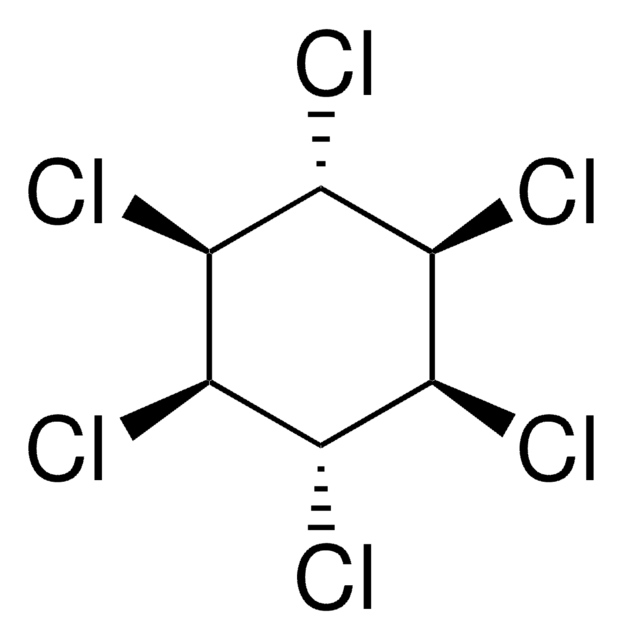35845
DCFHDA
BioReagent, suitable for fluorescence, ≥95% (HPLC)
Sinónimos:
2′,7′-Dichlorofluorescein diacetate, Diacetyldichlorofluorescein
About This Item
Productos recomendados
product line
BioReagent
Quality Level
assay
≥95% (HPLC)
mp
232-234 °C (lit.)
solubility
DMSO: soluble
fluorescence
λex 504 nm; λem 524 nm in 0.1 M Tris pH 8.0 (esterase)
suitability
suitable for fluorescence
storage temp.
2-8°C
SMILES string
CC(=O)Oc1cc2Oc3cc(OC(C)=O)c(Cl)cc3C4(OC(=O)c5ccccc45)c2cc1Cl
InChI
1S/C24H14Cl2O7/c1-11(27)30-21-9-19-15(7-17(21)25)24(14-6-4-3-5-13(14)23(29)33-24)16-8-18(26)22(31-12(2)28)10-20(16)32-19/h3-10H,1-2H3
InChI key
VQVUBYASAICPFU-UHFFFAOYSA-N
General description
Application
Dcfh-DA is used in the quantitative assay to measure oxidative stress in nanoparticle-treated cells.
Storage Class
11 - Combustible Solids
wgk_germany
WGK 3
flash_point_f
Not applicable
flash_point_c
Not applicable
ppe
dust mask type N95 (US), Eyeshields, Gloves
Certificados de análisis (COA)
Busque Certificados de análisis (COA) introduciendo el número de lote del producto. Los números de lote se encuentran en la etiqueta del producto después de las palabras «Lot» o «Batch»
¿Ya tiene este producto?
Encuentre la documentación para los productos que ha comprado recientemente en la Biblioteca de documentos.
Los clientes también vieron
Nuestro equipo de científicos tiene experiencia en todas las áreas de investigación: Ciencias de la vida, Ciencia de los materiales, Síntesis química, Cromatografía, Analítica y muchas otras.
Póngase en contacto con el Servicio técnico











